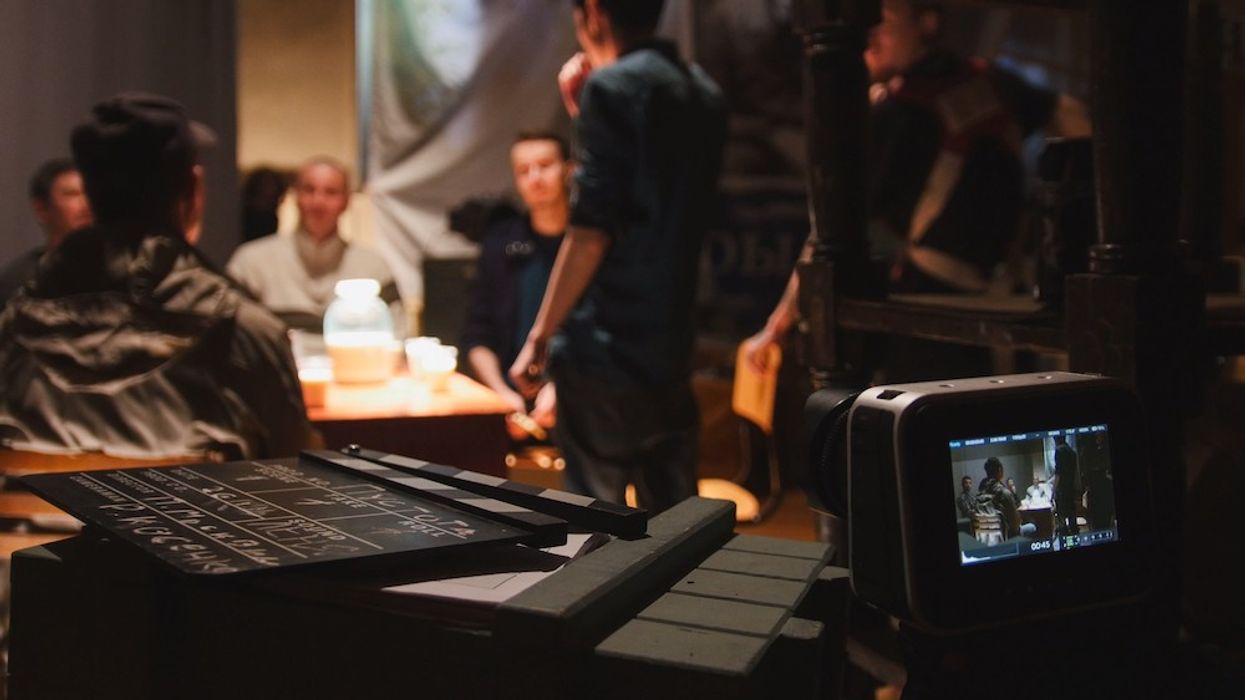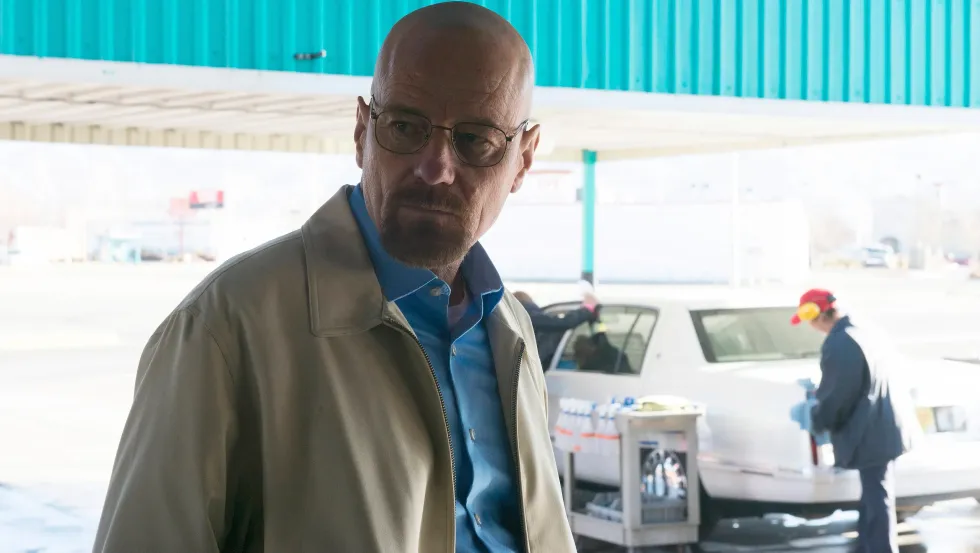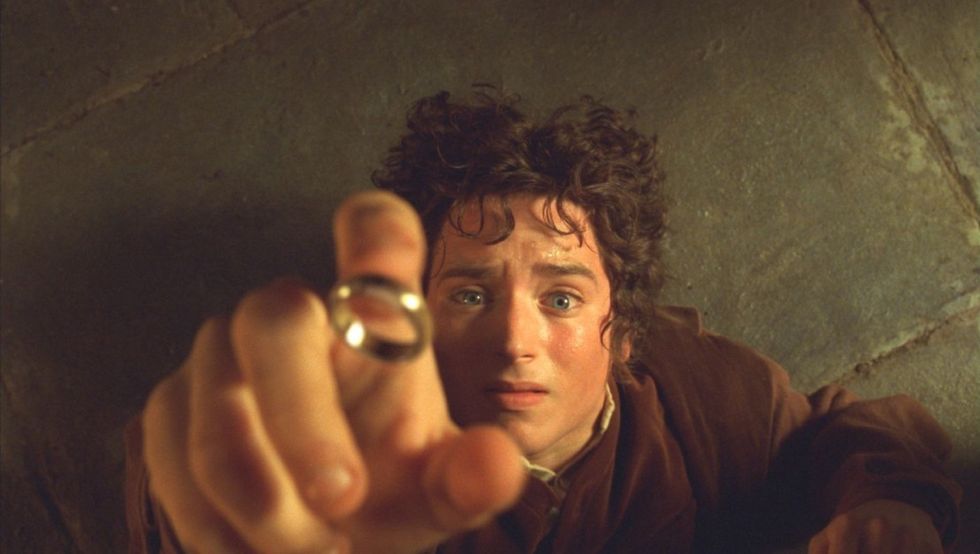How Do You Break Into Hollywood in the 2020s?
It's a new decade and the old ways of breaking in aren't cutting it. So, what's new in the film and TV industry?

The film industry is notoriously hard to break into. It's been compared to being a professional athlete; you have to continue to train and stay on top of your game if you want to start for a great team.
But just like professional sports, film and TV have changed through the ages...and so has the way you break into the industry.
As we enter into the 2020s, I wanted to devote an entire post to how to break into writing, directing, and producing in this new era.
Let's go.
How Do You Break Into Hollywood in the 2020s?
Let's talk about streaming...
Before I talk about Hollywood, I want to talk about how the business has changed over the last decade. We know that the rise in streamers like Netflix, Hulu, Amazon Prime, and Disney+ has put more content out into the world than ever before.
In 2020, an estimated $35 billion will be spent on streaming compared to a US box office that generates about $9 billion annually. Sheesh.
532 shows were made last year.
This streamer rise has increased the number of jobs out there.
Our very own Ryan Koo made headway with Amateur on Netflix.
Every day these platforms are expanding and creating to keep up with their competitors.
So, the good news is that there will be more jobs for making content in the 2020s, but bad news comes coupled with that as well.
More and more streamers are putting a focus on recognizable faces. That means your chances of getting a Quibi or YouTube show increase if you get stars behind and in front of the camera. See, with this much content, you need a reason for people to click. You want a face front and center on the thumbnail that encourages people to click and watch. That will get you multiple seasons and allow you to attract a fan base.
What's the bottom line on breaking in with streamers?
Right now, innovation is critical. We know what streamers deliver currently, but what will they provide next?
Companies like Quibi are buying projects that bring new elements to the story when viewed on mobile phones. The stories change when you watch landscape versus upright in your hand.
Other places are focused in on choice-driven viewing.
Interactivity is the blend of entertainment and gaming. When you choose for the characters, you choose to stay engaged with the content. That makes streamers very happy.
So if you're trying to break in and using streaming, think about what innovative ideas you can use to your advantage.
Breaking in using film festivals in the 2020s
By and large, film festivals like Sundance are great places to seek exposure, but they're also nearly impossible to get into now without a pedigree or studio backing. What used to be beautiful places to find new voices has become corporatized, meaning you still can find new people as long as a giant company made their movie.
Okay, so what can a new filmmaker do?
Our best advice is to make films and look for festivals that can build your clout before taking a swing at something much bigger.
Also, make sure your movie fits into what typically gets shown at the festival. If you have a genre movie, maybe try SXSW and not Cannes if you're a first-time filmmaker without a ton of press or prestigious backers. Go for Atlanta, Austin, or Woodstock.
Another thing you have to remember is that the most critical eyes at these festivals are the buyers who want to give your movie a platform. Since theatrical is becoming incredibly cutthroat, your best shot might be a streamer.
And even then, making an entire movie might wind up being the calling card that lets you pitch on progressively more significant projects.
So, instead of making a movie to break in, you might consider making some short films instead.
How will making a short film help my career in the 2020s?
Writing and directing short films has always been something we advocated for at No Film School. Not only do they provide you important time on set, but they also can showcase your talents on a limited budget or tease a feature film you want to get funded.
Shorts are now and will continue to be excellent sources of content.
There are so many places they can have homes and be seen by the masses. YouTube, Vimeo, Short of the Week, etc. all are websites with millions of viewers daily. Standing out in those places can be hard, but if you crack the code, you'll have something shareable and valuable.
And it's not just those websites. Netflix, Apple TV, and Prime all have various short programs that have stood out, like Love, Death, & Robots, Modern Love, and Amazing Stories (complete with gimmicky hooks to draw attention.)
Now you don't need a gimmick all the time, but it definitely helps when you're trying to sell a series of shorts.
It all starts with sitting down and writing a screenplay.
What are new ways for screenwriters to get noticed?
Sadly, I don't think writing a short film is going to get you noticed in this new decade. Luckily for writers all over, we are always in need of new voices and ideas. While IP will still be king in the 2020s, more things will hit the public domain every year.
And as we detailed above, you can come prepared with scripts and story ideas that are not just perfect for a film and TV pilot, but also perfect for a streaming series. You can also prepare pitches and TV pitch documents.
But I think focusing your talents writing things that get produced is extremely important.
To get your work produced, you need to get it in front of real makers. That usually takes reps.
How do writers get reps in the 2020s?
We've talked about it here before, but to get reps now, you have to stand out in some way. We've seen people use the Black List website (myself included) to get agents and managers. I still think it's a great way to be found, especially if you're not working in Hollywood or even living in the state of California.
Other options include contests. I think most are bullshit, but Nicholl, Austin, and Final Draft Big Break all have success stories linked to them.
Agent or Manager?
Right now, the WGA still has not settled its dispute with the ATA when it comes to agents representing writers. While this dispute does not cover writers outside of the WGA, I worry that signing with an agent when your ultimate goal is to become a big TV or Hollywood writer might be counterintuitive because once you're big enough to join the union, you'd have to fire them.
So what's the good news?
Recently, Verve, Gersh, Abrams Artists Agency, as well as some other smaller places have signed the WGA's agreement, meaning you can sign with them and not have to fire them later. As always, I advocate for newer writers to have a manager as well. Managers are like paid best friends. They give you advice, help bounce your ideas back and forth, and guide you through the beginning years of Hollywood.
While your lawyer handles negotiations, managers are great at listening and handling any situation you might find yourself in starting out.
The best way to get them is by referral, but there are new ways to be referred.
Like on Twitter.
Hashtags like #WGAStaffingBoost and #wgasolidaritychallenge helped people find work and be staffed. So you have a whole community of people you can interact with.
If you need notes or help, look no further than Reddit Screenwriting for a community that will support you.
All these things seem to be trends for 2020 and beyond, so keep your finger on the pulse when it comes to this stuff, especially if you're a director looking for great scripts you want to produce.
Any short cuts for directors now?
Things are so different than they used to be. People used to go to film school and come out applying for jobs. Or just spend time on set and work their way up. Right now, as we enter a new decade...people are obsessed with directors who have made things.
We learned from Christopher McQuarrie that making things is his number one piece of advice, but what should a director make?
Make shorts!
Things come full circle here, but having a bunch of shorts you can show people, especially proof of concepts for a feature. We interviewed Minhal Baig, the director and writer of Hala, who used a proof of concept short and a feature script to get her movie funded and premiered at Sundance. Now it's available on Apple TV.
More and more filmmakers are seeking this route because a short proves you can do the things you need to do on the feature version. Having scripts ready means you know where the story is going and the kinds of stories you want to tell moving forward.
Is making something a short cut?
No.
But it does cancel out the oppressive "gatekeeper" some people have dealt with in the past.
Camera equipment and cinematography in the 2020s
One of the craziest parts of the end of the 2010s was seeing the quality of footage improve on cameraphones. As we move into the 2020s, you'll continue to see the drop in price and rise in quality when it comes to what you can do at home.
The iPhone 11 shoots in 4K. That's wild!
While the equipment used day to day remains the same, you're running out of excuses why you can't crew up and shoot at home.
We talked with a director who made a 3000 shot feature with just him and his wife.
If you want to become a cinematographer, get out in the world and shoot. You can use your phone or an Alexa, but you need to get that practice composing shots, building a story, working with directors, and storyboarding.
Find a way to make your ideas more fluid.
Just like writing, there's a Reddit for you.
While we can make predictions like 8K and 24K coming soon, I think the general consensus is an amazing price drop. This will help ease your budget constraints and launch so many careers of people who might previously be priced out of the industry.
What will No Film School look like in the 2020s?
We've been on the internet for a decade, and stayed true to our mantra, "By filmmakers, for filmmakers."
We're excited to be introducing more long-form articles, video content, and a few surprises around the bend. If you have article or course suggestions for us, feel free to leave them in the comments below.
Our main goal for this new era is to continue to keep you up to date on what's happening inside the industry.
We do that by interfacing with you.
See a trend you think we forgot?
Put them below as well.
Let's make the 2020's the decade we all kick ass in TV, Hollywood, and across the world!
What's next? How to become a filmmaker...
Being a filmmaker/starting a career in filmmaking is not for the faint of heart.
In fact, whatever heart you have when you start, you better be ready to weather a storm of indignities, or be shatterproof, or fitted for a suit of armor or… maybe just be so broken and damaged to start that you’ll barely feel the pain…
Whoa, that got dark.
Click to read a lighter article than you'd expect!















